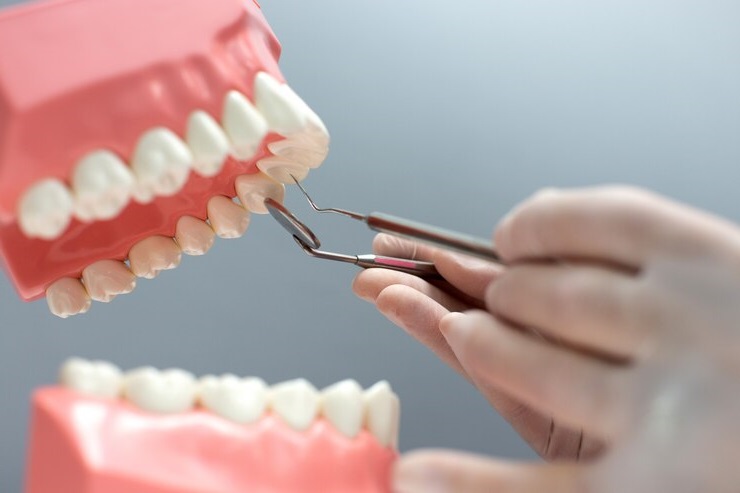
Probiotics are widely known for their benefits in promoting gut health and supporting the immune system. However, it’s important to understand that not all medications should be taken with probiotics. Certain drugs can interact negatively with probiotics, potentially reducing their effectiveness or causing unwanted side effects. Let’s explore which medications should not be taken with probiotics and why it’s crucial to be aware of these interactions.
Understanding Probiotics and Their Benefits
Probiotics are live microorganisms, often referred to as “good” bacteria, that provide numerous health benefits when consumed in adequate amounts. They help balance the gut microbiome, aid in digestion, and boost the immune system. However, knowing which medications should not be taken with probiotics is essential to ensure you reap the full benefits of these beneficial bacteria without any adverse effects.
Probiotics can be found in various forms, including dietary supplements, yogurt, and other fermented foods. They are commonly used to prevent or treat gastrointestinal issues such as diarrhea, irritable bowel syndrome (IBS), and inflammatory bowel disease (IBD). By understanding how probiotics work and their potential interactions with certain medications, you can make informed decisions about incorporating them into your health regimen.
Why Medication Interactions Matter
When it comes to medications should not be taken with probiotics, understanding the reasons behind these interactions is crucial. Some medications can alter the gut environment, making it less hospitable for probiotics to thrive. Others may reduce the effectiveness of probiotics or lead to side effects when combined. By being aware of these potential interactions, you can avoid negative consequences and maximize the benefits of both your medications and probiotics.
Medication interactions matter because they can significantly impact the effectiveness of your treatment and overall health. If certain medications should not be taken with probiotics, it’s essential to adjust your timing or choose different probiotic strains to ensure you get the most out of both your medication and probiotic therapy. This approach helps in maintaining a balanced gut microbiome while avoiding any adverse effects that might arise from these interactions.
Antibiotics and Probiotics
Antibiotics are among the most common medications should not be taken with probiotics without careful consideration. While antibiotics are essential for treating bacterial infections, they can also disrupt the balance of bacteria in the gut, killing both harmful and beneficial bacteria. This disruption can lead to side effects such as diarrhea and other gastrointestinal issues.
The Relationship Between Antibiotics and Probiotics
Antibiotics work by targeting and killing bacteria that cause infections. However, they do not distinguish between harmful and beneficial bacteria, leading to an imbalance in the gut microbiome. This imbalance can cause various digestive issues, making it important to understand how probiotics can help restore this balance.
How to Use Antibiotics and Probiotics Together
Despite the potential negative interactions, using probiotics alongside antibiotics can help mitigate some of the side effects. The key is timing. Taking probiotics a few hours after antibiotics can help replenish the beneficial bacteria in the gut without interfering with the antibiotic’s effectiveness. Always consult with a healthcare professional to determine the best approach for your specific situation.
Immunosuppressants and Probiotics
Immunosuppressants are medications should not be taken with probiotics without medical supervision. These drugs are used to suppress the immune system in conditions such as autoimmune diseases, organ transplants, and certain types of cancer. Because probiotics can stimulate the immune system, they may counteract the effects of immunosuppressants, leading to potential complications.
Understanding Immunosuppressants
Immunosuppressants work by dampening the immune response, which is crucial in preventing organ rejection and treating autoimmune conditions. However, the immune-boosting properties of probiotics can interfere with these medications, potentially leading to an increased risk of infections or reduced effectiveness of the immunosuppressant drugs.
Risks of Combining Immunosuppressants with Probiotics
Using probiotics while on immunosuppressants can increase the risk of infections and other immune-related issues. It’s essential to discuss with your healthcare provider before taking probiotics if you are on immunosuppressant therapy. They can provide guidance on whether it’s safe to use probiotics and recommend specific strains that may be more suitable.
Chemotherapy Drugs and Probiotics
Chemotherapy is another category of medications should not be taken with probiotics without careful planning. Chemotherapy drugs target rapidly dividing cells, including cancer cells. However, they can also affect healthy cells in the gut, leading to gastrointestinal side effects such as nausea, vomiting, and diarrhea.
The Impact of Chemotherapy on the Gut
Chemotherapy drugs can cause significant damage to the gut lining and disrupt the balance of gut bacteria. This can lead to severe digestive issues, making it crucial to approach the use of probiotics with caution during chemotherapy treatment.
Using Probiotics During Chemotherapy
While probiotics may help alleviate some of the gastrointestinal side effects of chemotherapy, it’s crucial to consult with your oncologist before starting any probiotic regimen. Certain probiotics may interfere with chemotherapy drugs or increase the risk of infections due to the immunosuppressive effects of chemotherapy.
Antifungal Medications and Probiotics
Antifungal medications are used to treat fungal infections and are another example of medications should not be taken with probiotics without proper guidance. These drugs can alter the balance of microorganisms in the gut, potentially reducing the effectiveness of probiotics.
The Role of Antifungal Medications
Antifungal medications work by targeting and eliminating fungal pathogens in the body. However, their impact on the gut microbiome can affect the balance of beneficial bacteria, making it essential to carefully manage the use of probiotics alongside these drugs.
Timing and Selection of Probiotics
If you need to take antifungal medications, it’s important to time your probiotic intake carefully. Taking probiotics at a different time of day from antifungal medications can help maintain their effectiveness. Additionally, choosing specific strains of probiotics that are less likely to be affected by antifungal drugs can be beneficial.
Blood Thinners and Probiotics
Blood thinners, or anticoagulants, are medications should not be taken with probiotics without medical advice. These drugs are used to prevent blood clots and are crucial for individuals with conditions such as atrial fibrillation, deep vein thrombosis, or those who have had certain types of surgery.
Understanding Blood Thinners
Blood thinners work by reducing the blood’s ability to clot, which is essential in preventing strokes and other clot-related complications. However, the interaction between blood thinners and certain probiotics can affect the drug’s efficacy or increase the risk of bleeding.
Potential Interactions with Probiotics
Some probiotics may interact with blood thinners, potentially affecting their efficacy or increasing the risk of bleeding. It’s essential to consult with your healthcare provider before starting any probiotic supplements if you are on blood thinners. They can help you choose the right type of probiotics and monitor for any potential interactions.
Antidepressants and Probiotics
Antidepressants are commonly prescribed to treat depression and anxiety disorders. While they are not typically known for direct interactions with probiotics, it’s still important to be cautious.
The Role of Antidepressants
Antidepressants work by altering the levels of neurotransmitters in the brain to improve mood and alleviate symptoms of depression and anxiety. Understanding how probiotics can affect mental health is essential when combining these treatments.
How Probiotics Can Affect Mental Health
Certain strains of probiotics have been shown to impact mental health positively by influencing the gut-brain axis. However, combining probiotics with antidepressants should be done under medical supervision to ensure there are no adverse effects or interactions that could affect the treatment’s efficacy.
Steroids and Probiotics
Steroids are anti-inflammatory drugs used to treat a variety of conditions, including asthma, allergies, and autoimmune diseases. They are another group of medications should not be taken with probiotics without consulting a healthcare provider.
Understanding Steroid Medications
Steroids work by suppressing inflammation and modulating the immune system. This can lead to a reduced ability to fight infections, making it essential to consider the immune-boosting properties of probiotics when using these medications.
Interactions Between Steroids and Probiotics
Steroids can suppress the immune system, potentially increasing the risk of infections. Since probiotics can stimulate the immune system, using them together may lead to unintended consequences. It’s essential to discuss with your doctor before combining probiotics with steroid treatment.
Diabetic Medications and Probiotics
Diabetic medications are essential for managing blood sugar levels in individuals with diabetes. Some of these medications should not be taken with probiotics without medical advice, as they can interact in ways that affect blood sugar control.
The Role of Diabetic Medications
Diabetic medications work by lowering blood sugar levels, enhancing insulin sensitivity, or increasing insulin production. Managing these medications alongside probiotics requires careful monitoring and adjustment.
Managing Diabetes with Probiotics
Certain probiotics may help improve blood sugar control and support metabolic health. However, it’s important to monitor blood sugar levels closely and work with a healthcare provider to adjust medications as needed when introducing probiotics into your routine.
Antacids and Probiotics
Antacids are used to neutralize stomach acid and relieve symptoms of indigestion and heartburn. They are another example of medications should not be taken with probiotics without considering timing and dosage.
Understanding Antacids
Antacids work by neutralizing stomach acid, which can relieve symptoms of heartburn and indigestion. However, altering the stomach’s pH balance can affect the survival and efficacy of probiotics.
How Antacids Affect Probiotics
Antacids can alter the pH balance in the stomach, potentially affecting the survival and efficacy of probiotics. To ensure that probiotics remain effective, it’s best to take them at a different time of day from antacids.
Anti-inflammatory Drugs and Probiotics
Nonsteroidal anti-inflammatory drugs (NSAIDs) are commonly used to reduce inflammation and relieve pain. They are among the medications should not be taken with probiotics without careful planning.
The Role of Anti-inflammatory Drugs
NSAIDs work by reducing the production of inflammatory substances in the body, which can relieve pain and inflammation. However, they can also cause gastrointestinal irritation and damage.
Combining NSAIDs with Probiotics
While probiotics can help reduce inflammation in the gut, NSAIDs can cause gastrointestinal irritation and damage. Using probiotics may help mitigate some of these side effects, but it’s important to consult with a healthcare provider to ensure safe and effective use.
Conclusion
Understanding which medications should not be taken with probiotics is crucial for maximizing the benefits of both your medications and probiotics while minimizing potential risks. Antibiotics, immunosuppressants, chemotherapy drugs, antifungal medications, blood thinners, antidepressants, steroids, diabetic medications, antacids, and anti-inflammatory drugs are among the medications that require careful consideration when used with probiotics. Always consult with your healthcare provider before combining any probiotics with your current medications to ensure safe and effective treatment.





